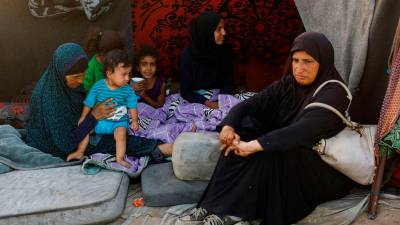GENEVA: Nearly 42,000 people in the Gaza Strip are living with life-changing injuries as a result of the ongoing conflict, the World Health Organisation (WHO) estimated in its latest update released on Thursday. One in four of these victims are children.
According to the report Estimating Trauma Rehabilitation Needs in Gaza, September 2025 Update, life-changing injuries account for one quarter of all reported cases, out of a total of 167,376 people injured since October 2023. More than 5,000 have undergone amputations, the WHO said. The findings, based on a wider data pool, remain consistent with the organisation’s earlier analyses, reported Xinhua.
The report documents widespread severe injuries, including damage to limbs, spinal cord, brain, and major burns, creating a massive demand for specialised surgical and rehabilitation services. Many families face long-term struggles as patients require intensive care.
Complex facial and eye injuries are also prevalent, particularly among those awaiting medical evacuation outside Gaza. These conditions frequently lead to disfigurement, disability, and social stigma.
Drawing on data from 22 WHO-supported Emergency Medical Teams (EMTs), Gaza’s Ministry of Health, and other partners, the update presents the most comprehensive picture to date of rehabilitation needs arising from trauma injuries.
Meanwhile, Gaza’s health system is nearing collapse. Only 14 of its 36 hospitals remain partially functional. Less than one-third of pre-conflict rehabilitation facilities are operating, with several on the verge of closure. None are fully functional despite the continued efforts of EMTs and health organisations.
The conflict has also decimated the rehabilitation workforce. Gaza once had around 1,300 physiotherapists and 400 occupational therapists, but many have been displaced. Those still providing care are under extreme pressure. Despite thousands of amputations, the territory has just eight prosthetists to produce and fit artificial limbs.
“Rehabilitation is vital not only for trauma recovery but also for people with chronic conditions and disabilities, which are not reflected in this report,“ said Richard Peeperkorn, WHO Representative in the occupied Palestinian territory.
WHO, along with EMTs and health partners, continues to work on the ground to address urgent health needs. However, the report emphasised that scaling up rehabilitation services requires urgent protection of health care facilities, unrestricted access to fuel and medical supplies, and the removal of barriers to importing essential items such as assistive devices.
WHO reiterated its call for an immediate ceasefire. “The people of Gaza deserve peace, the right to health and care, and a chance to heal,“ the report stated -BERNAMA-XINHUA
